
The University of Aberdeen is a public research university in Aberdeen, Scotland. It is an ancient university founded in 1495 when William Elphinstone, Bishop of Aberdeen and Chancellor of Scotland, petitioned Pope Alexander VI on behalf of James IV, King of Scots to establish King's College, making it Scotland's third-oldest university and the fifth-oldest in the English-speaking world. Aberdeen is consistently ranked among the top 160 universities in the world and is ranked within the top 20 universities in the United Kingdom according to The Guardian, The Times and The Sunday Times.

Marischal College is a large granite building on Broad Street in the centre of Aberdeen in north-east Scotland, and since 2011 has acted as the headquarters of Aberdeen City Council. However, the building was constructed for and is on long-term lease from the University of Aberdeen, which still uses parts of the building to house a museum. Today, it provides corporate office space and public access to council services, adjacent to the Town House, the city's historic seat of local government. Many Aberdonians consider Marischal College to be an icon of the "Granite City" and to symbolise the zenith of Aberdeen's granite-working industry.
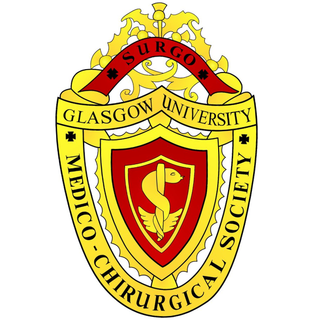
The University of Glasgow Medico-Chirurgical Society is a student society at the University of Glasgow which organises social and educational events for medical students at the University. The President for 2022/23 is Elliott Shaw.
Foresterhill is an area in the city of Aberdeen, Scotland. It is the site of the city's main hospitals, as well as the medical school and medical science departments of the University of Aberdeen. It is the largest hospital complex in Europe.

Aberdeen Maternity Hospital (AMH) is a specialist maternity hospital in Aberdeen, Scotland. Between 4,000 and 5,000 babies are born at AMH each year. The hospital is located in the Foresterhill area of Aberdeen and serves the region of Grampian as well as the islands of Shetland and Orkney. It is managed by NHS Grampian.
Aberdeen University School of Medicine, Medical Sciences & Nutrition contains the Medical School and Dental School at the University of Aberdeen in Scotland. It also provides training and carries out research in medical sciences, nutrition, public health, dentistry, health sciences, physician associate studies at BSc, MSc, and PhD levels. The current school was formed from the merger of the former School of Medicine & Dentistry, School of Medical Sciences, and the Rowett Institute of Nutrition.
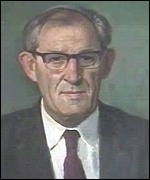
Sir Dugald Baird FRCOG was a Scottish medical doctor and a professor of obstetrics and gynaecology. Baird was most notable and influential in calling for the liberalising of abortion. In his delivery of the Sandoz lecture in November 1961, titled the Fifth Freedom, he advocated for freedom from the tyranny of fertility.
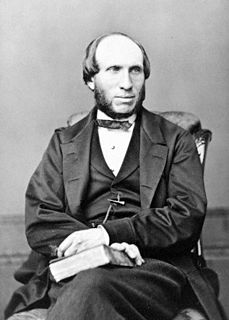
Sir John Struthers MD FRCSE FRSE was the first Regius Professor of Anatomy at the University of Aberdeen. He was a dynamic teacher and administrator, transforming the status of the institutions in which he worked. He was equally passionate about anatomy, enthusiastically seeking out and dissecting the largest and finest specimens, including whales, and troubling his colleagues with his single-minded quest for money and space for his collection. His collection was donated to Surgeon's Hall in Edinburgh.
The Journal of the Royal Society of Medicine is an open peer-reviewed medical journal. It is the flagship journal of the Royal Society of Medicine with full editorial independence. Its continuous publication history dates back to 1809. Since July 2005 the editor-in-chief is Kamran Abbasi, who succeeded Robin Fox who was editor for almost 10 years.

Sir James McGrigor, 1st Baronet, was a Scottish physician, military surgeon and botanist, considered to be the man largely responsible for the creation of the Royal Army Medical Corps. He served as Rector of the University of Aberdeen.

Sir Thomas Grainger Stewart was an eminent Scottish physician who served as president of the Royal College of Physicians of Edinburgh (1889–1891), president of the Medico-Chirurgical Society of Edinburgh, president of the medicine section of the British Medical Association, and Physician-in-Ordinary to the Queen for Scotland. He was perhaps best known for describing the condition known as multiple neuritis as well as directing scientific attention in Great Britain to the deep reflexes.
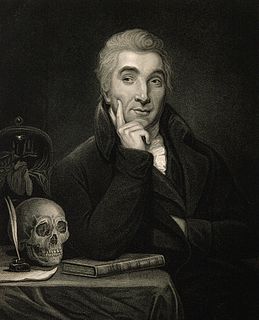
John Haighton MD, FRS, was an English physician and physiologist.
Events from the year 1802 in Scotland.
Sir David Campbell MC FRSE (1889–1978) was a Scottish physician and pharmacologist. He was Professor of Materia Medica at Aberdeen University from 1930 to 1959. He won the Military Cross in 1918 due to his bravery serving in the Royal Army Medical Corps.
The Royal Physical Society of Edinburgh was a learned society based in Edinburgh, Scotland "for the cultivation of the physical sciences".
Events from the year 1789 in Scotland.
Sir John Marnoch (1867–1936) was Surgeon to the Royal Household in Scotland, Regius Professor of Surgery (Aberdeen) 1909–32 at the University of Aberdeen and President of the Aberdeen Medico-Chirurgical Society, 1909–10.
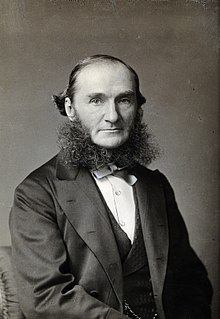
Sir Alexander Russell Simpson FRCPE FRSE LLD was a Scottish physician and Professor of Midwifery at the University of Edinburgh. He invented the axis-traction forceps also known as the obstetrics forceps which assisted in childbirth and reducing pain.
Prof James Greig Smith FRSE (1854–1897) was a 19th-century Scottish surgeon and author of the highly successful textbook Abdominal Surgery.
John Stirling Young FRSE (1894–1971) was a 20th-century Scottish physician who served as Professor of Pathology at Aberdeen University. He specialised in histology and tumour pathology.










